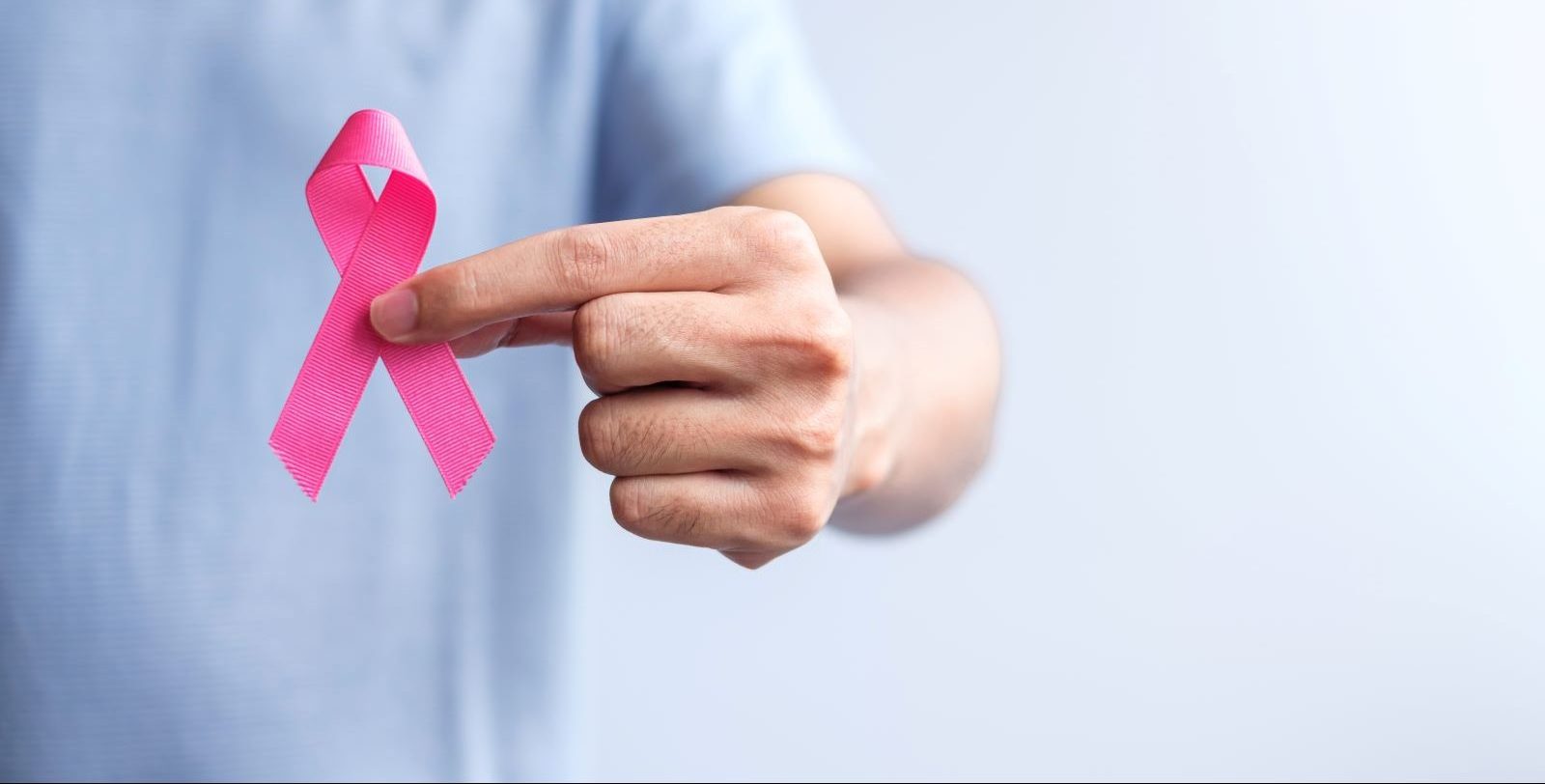<< Back
“I Never Heard Him Talk About It:” The Risks and Stigma of Male Breast Cancer

October 26, 2022
When Ray Abbassi was diagnosed with stage 4 breast cancer, he and his wife, Kathi, flew halfway across the country for a second opinion. In the exam room of a renowned cancer center, the nurse made a beeline for Kathi.
The awkward moments that followed — Kathi politely declining to step on the scale, Ray having to explain that he was the patient — were a preview of the years to come. It was 1999, and even the health experts were shocked to meet a man with breast cancer. Throughout his illness, Ray felt alone in his diagnosis.
Today, his daughter wants to make sure other men don’t.
Sara Abbassi is a fellow at Hartford HealthCare’s Ayer Neuroscience Institute. She tells her father’s story to raise awareness that breast cancer is not just a women’s disease, and to help other men get the care and support they need.
Fathers, husbands, brothers with breast cancer
Male breast cancer is rare, making up just one percent of the breast cancer population. But it is often devastating. Each year, more than 2,700 men are diagnosed with the disease. About 530 men die from it. With greater awareness, many of these deaths could be prevented.
“If we treat men and women in terms of stage of breast cancer, their survival is the same,” says Valerie Brutus, MD, a breast surgeon at Hartford HealthCare. “But men tend to be diagnosed at a later stage.”
That’s because most men — and sometimes, even their health teams — don’t consider the possibility of breast cancer until it’s too late. Men with a family history of breast cancer should talk to their doctor about preventive screenings, but most don’t. They tend to ignore early symptoms, like changes in the breast, or put off getting checked. By the time there’s a diagnosis, the cancer has often spread.
Ray Abbassi’s symptoms started at home in Miami, with pain on the left side of his chest. For months, he kept turning up at the closest Emergency Room, sure he was having a heart attack. Every time, he was dismissed with a clean bill of health.
Then he developed a lump on his left breast. Kathi worried it might be breast cancer. No, the doctor assured them, that’s basically impossible. He removed the lump, but didn’t bother to rush the biopsy.
When the results came back, they showed that the cancer had already metastasized to Ray’s bones.
The emotional toll of male breast cancer
Sara Abbassi was 3 years old when her father received his diagnosis. Growing up, she knew her dad was sick and spent a lot of time at the hospital. She knew he had a scar on his chest, and didn’t like taking his shirt off when they were at the neighborhood pool. But she didn’t know much more than that. Her dad went out of his way to avoid naming his illness.
“I never heard him talk about it. It was always just the word ‘cancer,’” says Sara.
As an adult, she’s learned more about the stigma her father felt, and why. Like the embarrassing mix-up with the nurse and Kathi at the cancer center. Or being the only man in the chemotherapy clinic, sitting under a pink sign that read “Fight like a girl.” Or feeling uncomfortable talking about his diagnosis — even to the people closest to him — even as he endured chemo, radiation and multiple surgeries.
“Cancer is hard enough,” says Sara. “My dad had the whole emotional toll of being embarrassed about it too.”
Just before his 50th birthday, Ray passed away. Sara was 10 years old. The day he died was the first time she learned there are different types of cancer, and that her dad’s was breast cancer.
A daughter’s mission to raise awareness
In middle school, when Sara told classmates that her dad died from breast cancer, she was often met with uncomfortable laughter. Her brother was bullied. Still, she continued to talk openly about their dad’s diagnosis. Even as a teen, she sensed it was important for other people to know.
In high school, she became involved in fundraising efforts like the Susan G. Komen Breast Cancer Foundation. As she led activities to support research and awareness, she also suggested ways to make events more gender-inclusive — like swapping out the “Fight like a girl” signs that made her dad’s chemo more painful. She grew adept at handling reactions ranging from surprise and shock to outright skepticism.
There’s still a long way to go. To this day, when she’s going over family history at her own medical appointments, she’s often asked, “Are you sure it was your dad who had breast cancer? Not your mom?”
By partnering with healthcare systems like Hartford HealthCare, she plans to change that.
Sara’s fellowship at Hartford HealthCare is part of a masters degree in health administration, which she’s earning from The George Washington University. One of her career goals is to raise awareness about male breast cancer in healthcare teams and communities across the country.
“I don’t want to take away the pink , and I never want to undermine women,” says Sara. “I’m at risk. I have a family history of breast cancer. But I want everyone to know that men get breast cancer too. Far too many men die from it. It’s nothing to be shocked by. It’s nothing to be embarrassed by. No one is exempt from this.”